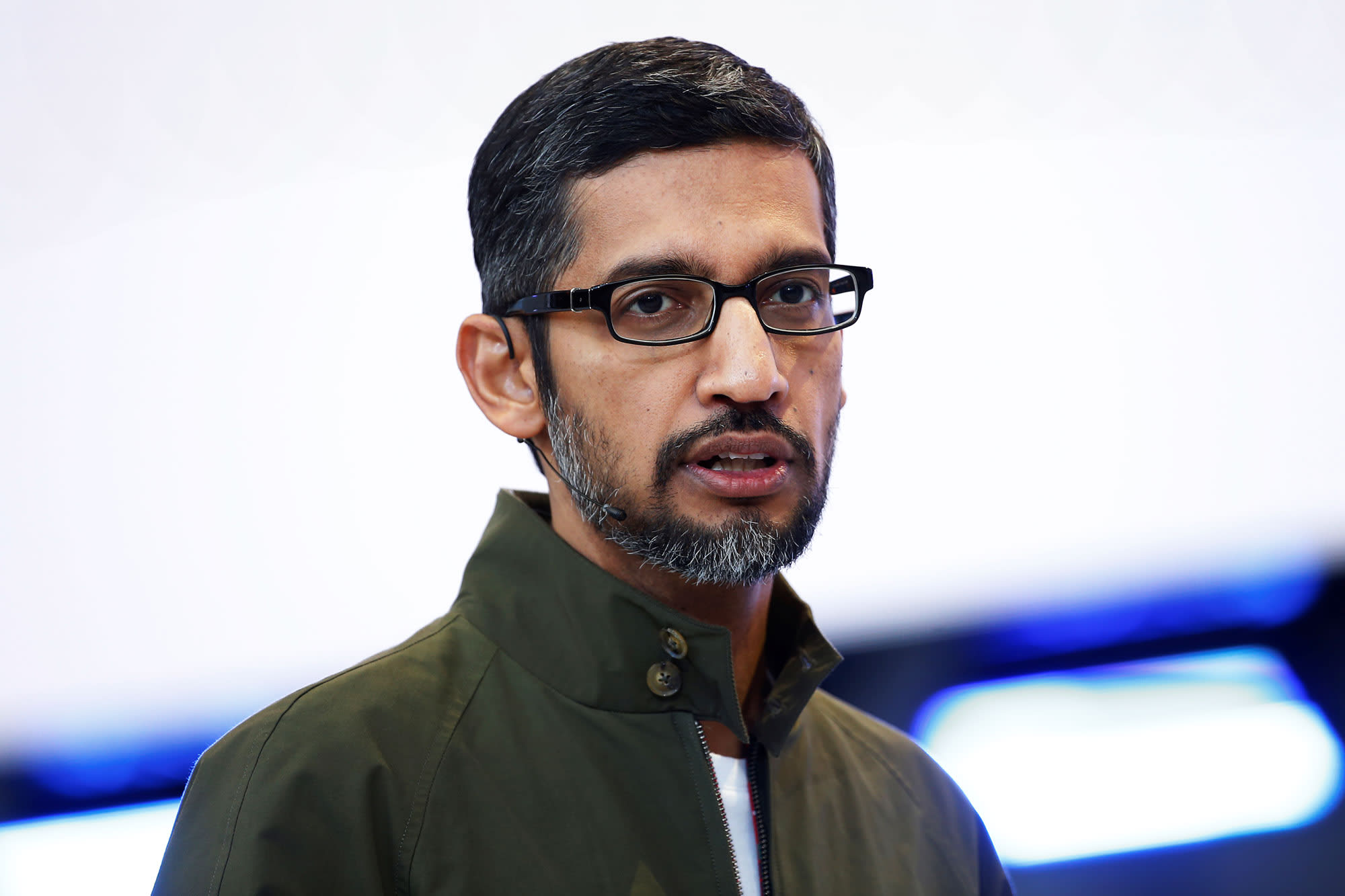YouTube will add Election Day warning label: ‘Results may not be final’

Google CEO Sundar Pichai speaks on stage during the annual Google I/O developers conference in Mountain View, California, May 8, 2018.
Stephen Lam | Reuters
Google-owned YouTube will add an elections results label to search queries and videos and on Election Day as a means of addressing potential misinformation surrounding the elections.
In a blog post, YouTube said it will place a label — or “information panel,” as Google calls it — at the top of search results for election-related queries, and below relevant videos, with the message: “Results may not be final. See the latest on Google.”
If users click on the tag’s link, it will take them to a separate Google page with real-time national and state-wide election results from data by The Associated Press.
In a separate blog post the company said it will also continue promoting what it considers “authoritative” news sources like CNN and Fox News for news and search results, including in the “watch next” panels.
The latest announcement comes as social media companies, including YouTube, scramble to update its policies to curb misinformation that has plagued sites — particularly surrounding politics — in the last year. Last month, following a Facebook decision to ban political ads after the election, Google said it would temporarily pause ads referencing the 2020 election or its outcome starting on Election Day, which is Nov. 3. Last month, YouTube announced a policy to ban conspiracy theories that could result in real-world violence, including those by far-right group QAnon, but stopped short of an all-out ban.
The YouTube announcement comes later and with less detail than other social networks. Twitter, Facebook and TikTok have explicitly stated measures if a candidate or party prematurely claims victory.
When asked about a specific plan surrounding early victory claims, the company only said it will continue adhering to its existing policy that states YouTube “prohibits misleading claims about voting or content that encourages interference in the democratic process.”
Watch Now: How social media will play a big role in the 2020 election
